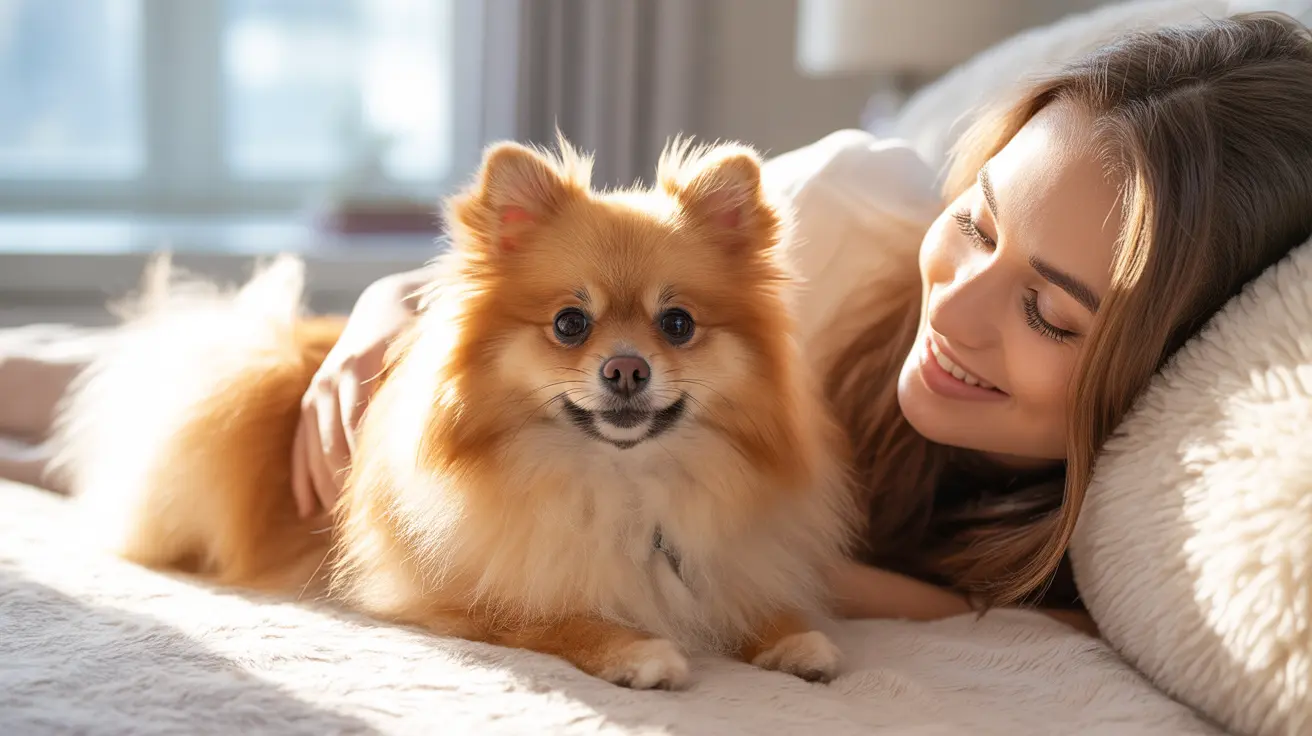If you've noticed your dog consistently choosing to snuggle up with you instead of your husband during bedtime, you're not alone. This common behavior has deep roots in canine psychology, pack dynamics, and the unique bonds dogs form with their human family members.
Understanding why your dog shows this sleeping preference can help you better appreciate the special connection you share with your pet while ensuring everyone in the household maintains a healthy relationship with your furry family member.
The Science of Canine Attachment
Dogs develop attachment bonds remarkably similar to those between human infants and their parents. This attachment system influences their behavior, especially during vulnerable moments like sleep. When your dog chooses to sleep with you, they're demonstrating a deep trust and emotional connection that's been built over time.
Research shows that dogs experience increased levels of oxytocin - often called the "love hormone" - when close to their preferred human companions. This physiological response reinforces their desire to maintain proximity, particularly during rest periods.
The Power of Scent and Familiarity
Dogs possess an incredibly sophisticated sense of smell, which plays a crucial role in their sleeping preferences. Your personal scent, which accumulates in your sleeping area, creates a powerful comfort zone for your pet. This scent association can be particularly strong if you're the primary caregiver or spend more time with the dog during daily activities.
Additionally, your unique body chemistry and hormone levels might be more appealing or comforting to your dog compared to your husband's. Even subtle differences in body temperature or sleeping position can influence your dog's choice of sleeping companion.
Pack Behavior and Protection Instincts
In the wild, dogs sleep together as a pack for warmth, security, and mutual protection. This instinct remains strong in domestic dogs, who view their human family as their pack. Your dog might choose you as their preferred sleeping partner because they've designated you as a key member of their pack hierarchy.
Some dogs also display protective behaviors, particularly towards family members they perceive as more vulnerable or in need of protection. This could explain why they choose to sleep closer to certain family members over others.
The Role of Daily Interactions
Your dog's sleeping preferences often reflect the quality and quantity of daily interactions. If you're the one who typically feeds, walks, or trains your dog, they may naturally gravitate toward you during rest periods. These regular positive interactions strengthen your bond and reinforce their desire to be near you.
Frequently Asked Questions
Why does my dog prefer sleeping with me over my partner?
Your dog's preference might stem from stronger bonding through daily care, your unique scent, or the comfort they feel from your particular sleeping habits and body temperature. Regular positive interactions with you can create a stronger attachment.
How can I encourage my dog to sleep comfortably and securely without claiming our bed?
Provide a comfortable dog bed near your sleeping area, establish a consistent bedtime routine, and use positive reinforcement to encourage independent sleeping habits. Consider placing items with your scent in their bed for comfort.
Do dogs release any specific hormones or chemicals when they sleep near their owners?
Yes, dogs release oxytocin and dopamine when close to their bonded humans. These hormones promote feelings of happiness and security, reinforcing their desire to sleep near their preferred person.
How can a strong bond between a dog and one specific family member affect their sleeping preferences?
A strong bond typically results in increased trust and comfort levels, leading the dog to seek out that person during vulnerable times like sleep. This preference is reinforced through positive daily interactions and shared experiences.
What role does scent play in a dog's decision to sleep on one person rather than another?
Scent is a crucial factor in your dog's sleeping preferences. Dogs are attracted to familiar, comforting scents and may prefer sleeping with the person whose scent they find most appealing or reassuring.






